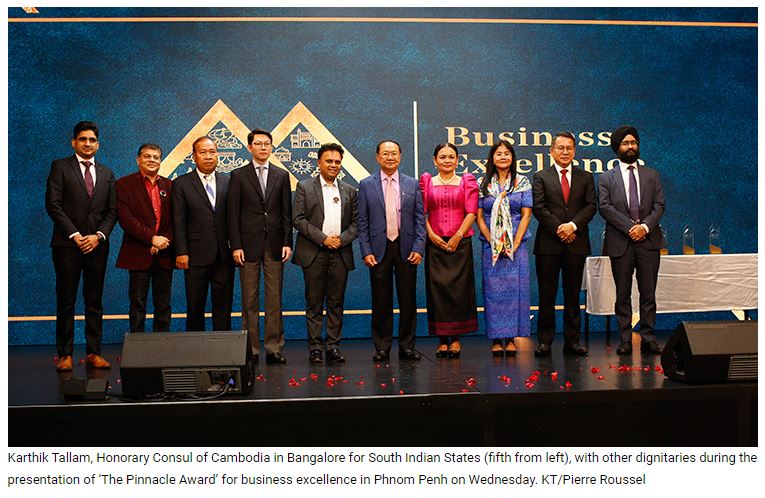Tax holiday for investments in Cambodia hi-tech sector
Investment in hi-tech industries in Cambodia can attract a tax holiday of nine years, according to Sam Chanmoney, an Official for Public Relations and Promotion of Private Investments, Council for the Development of Cambodia (CDC), yesterday.
While making a presentation on investment opportunities in Cambodia for the benefit of a visiting high-level business delegation from India, at Sun and Moon Riverside Hotel, in Phnom Penh, Chanmoney said that apart from this such industries can enjoy several other incentives too for as many as 15 years.
According to the CDC official, Cambodia is one of the most open countries in the world and it allows 100 percent foreign ownership in more than 99 percent of businesses. “Barring a few, 100 percent foreign investment is allowed in almost all businesses and industries in Cambodia making the country one of the best in the world for foreign investments,” he said.
Cambodia does not allow foreigners to buy land in the country but they can own condominiums or apartments from the first floor onwards. Corporate income tax for the majority of industries is also pegged at 20 percent in Cambodia.
Tax holidays for foreign investments in the country range from three years to nine years. Industries are also allowed to import building materials and construction equipment without paying tariffs, the CDC Official said.
According to Chanmoney, another advantage of investing in Cambodia is that the country has bilateral trade agreements with some of the top industrial powers in the world such as China and South Korea. Cambodia is also now finalizing a bilateral trade treaty with the UAE called Comprehensive Economic Partnership Agreement (CEPA).
“The agreement with the UAE is in the final stage. The negotiations have been completed and the legal processing is going on,” he said.
By being a Member State of Asean, Cambodia also enjoys trade benefits across the Southeast Asia region. It is also a member of the 15-member strong Regional Comprehensive Partnership Agreement (RCEP).
Chanmoney told the Indian delegation that another method to invest in Cambodia is through the public-private partnership route. Cambodia has some good examples of this kind of investment such as the $2 billion Phnom Penh-Sihanoukville Expressway that was opened for traffic in October last year.
“We also have more such projects coming up such as the Phnom Penh-Bavet Expressway and Phnom Penh-Siem Reap Expressway,” he added.
Chanmoney said that the role of CDC does not end with approving foreign investment projects. “We facilitate projects. We help investors to link with business partners. We also provide aftercare for investors,” he pointed out, adding that it now takes just 20 working days for a project to get approved in Cambodia.
He said the country is now focusing more on digitalization and industries that help with this can attract maximum incentives. The Covid-19 pandemic made Cambodia at least 10 years faster in adopting digital technologies.
Another industry that can attract maximum incentives in Cambodia is the one promoting green technologies such as those for producing green energy. Cambodia is known for its strength in this sector as more than 60 percent of the Kingdom’s energy needs are now met by green energy, especially hydroelectricity.
The nearly 50-member strong Indian business delegation, on a three-day visit to Cambodia, attended several sessions with top officials to understand the country better and also held discussions with Cambodian businesspeople on possibilities of joint projects and investments in the Kingdom.
Source: https://www.khmertimeskh.com/501269339/tax-holiday-for-investments-in-cambodia-hi-tech-sector/


 English
English




